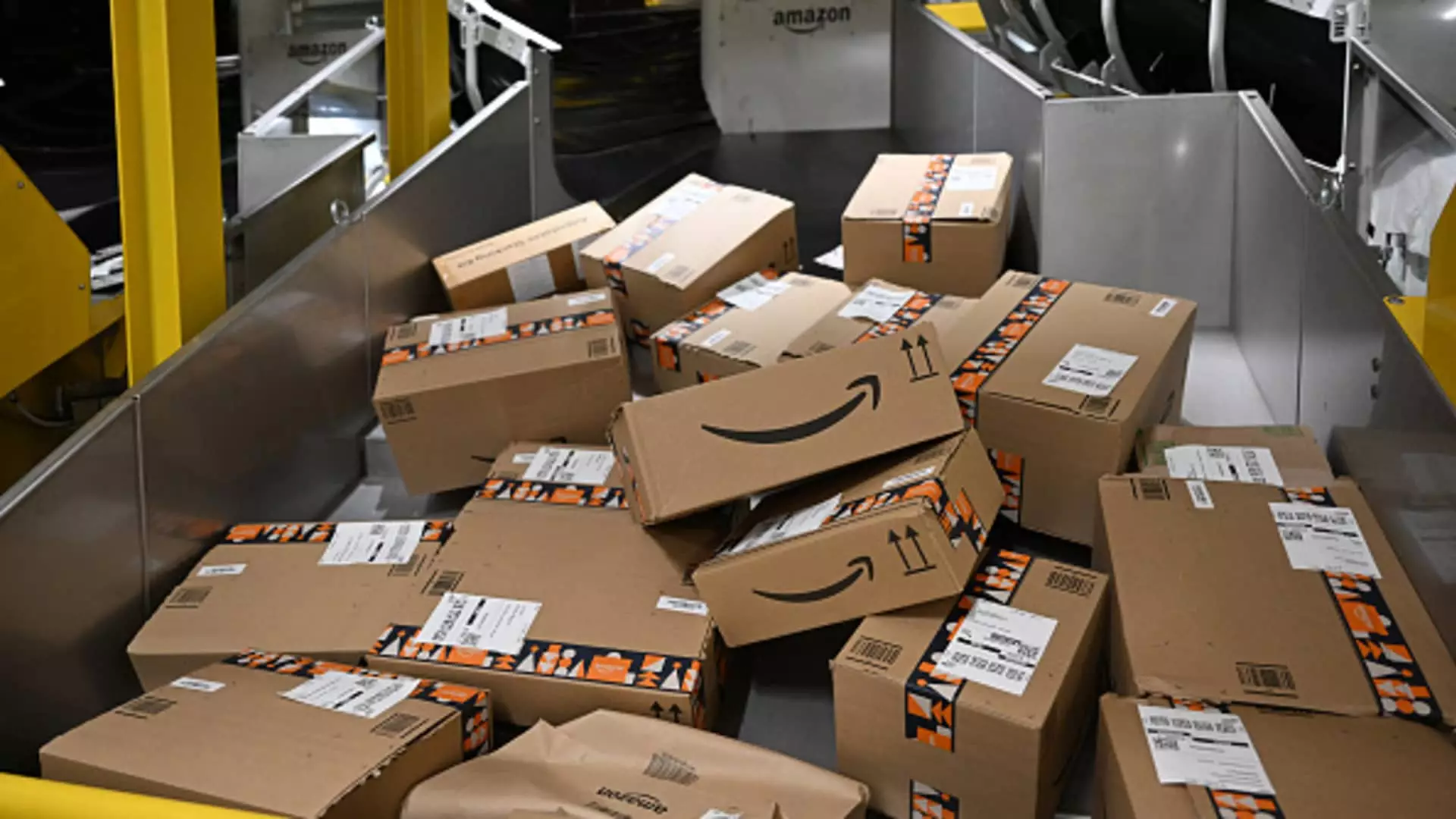In an era where e-commerce has reshaped retail, the implications of a single company’s pricing mechanisms can have far-reaching consequences. Recently, the German Federal Cartel Office sounded the alarm on Amazon’s pricing controls for third-party sellers, indicating that these practices may violate competition laws. This isn’t merely an abstract issue of market regulations; it’s a direct assault on the very nature of fair competition, a principle that should underpin any healthy economy.
Amazon’s intricate algorithms, designed to dictate pricing dynamics on its platform, inherently disadvantage independent sellers. When prices are flagged as “non-competitive,” the repercussions can be severe. Products suffer from diminished visibility; they may vanish from critical advertising slots or, worse, be removed from the coveted buy box entirely. This isn’t just a technical adjustment—it’s a declared war on competition. Institutions like the Federal Cartel Office draw attention to the alarming fact that Amazon, a marketplace and a direct competitor, wields the power to diminish the prospects of its sellers through opaque rules. This dual role sets a dangerous precedent that invites skepticism concerning the integrity of online retail.
Compromising the Seller’s Autonomy
The Cartel Office’s findings highlight the stark reality that Amazon’s policies could restrict sellers’ autonomy to set prices freely. This goes beyond simple inconvenience; it fundamentally alters the landscape of e-commerce by creating an unlevel playing field. In a market that should foster competition by encouraging diverse price points, Amazon’s control disrupts this balance. Sellers may find themselves caught in a web of algorithmic constraints, forced to conform to Amazon’s pricing standards, often at the expense of their own profitability.
Amazon’s defense against these accusations is equally telling. The company claims that its pricing practices are necessary to cultivate an experience that benefits both buyers and sellers. However, this narrative feels disingenuous. Are we to believe that creating a marketplace devoid of competitive pricing genuinely values the consumer experience? By prioritizing its interests above those of its sellers, Amazon not only jeopardizes their livelihoods but also potentially shortchanges consumers. A marketplace that discourages price competition is a marketplace that breeds complacency and inhibits genuine consumer choice.
The Implications for Retail Diversity
At stake here is more than just the fortunes of a few sellers; we are at a juncture that could define the future of online commerce in Germany and beyond. If left unchecked, Amazon’s practices could discourage independent vendors from participating in the marketplace, leading to homogeneity in product offerings. The essence of retail lies in diversity. Various price points and product offerings empower consumers to make informed choices, fueling innovation and competition. When a giant like Amazon dictates the rules of engagement, this diversity becomes endangered.
This worry resonates within the broader context of ongoing regulatory scrutiny. The company is already facing investigations from various regulatory bodies, including the U.S. Federal Trade Commission, further amplifying questions surrounding its business practices. The objective scrutiny from these authorities should not be viewed merely as an inconvenience; rather, it should be seen as a crucial mechanism for safeguarding competitive integrity. If corporations are permitted to operate with impunity, the underlying principles of free market competition will erode, creating an oligopoly in which a few corporations dictate terms to both consumers and smaller competitors.
Quest for Accountability
It is imperative that consumers, sellers, and regulators unite in this moment to demand a marketplace that champions fairness. The scrutiny that Amazon faces today could serve as a pivotal moment for reshaping the landscape of e-commerce. If the preliminary findings of the Cartel Office lead to tangible changes, it may redefine how large marketplaces handle pricing issues in future. Accountability in pricing practices is not just beneficial for sellers but essential for preserving the consumer’s right to choose and receive value for their money.
As the dialogue surrounding competition intensifies, it is essential that we remain vigilant against practices that seek to undermine fair play in the marketplace. It’s not simply an issue of legal compliance for Amazon; it is a matter of ethical responsibility and accountability in a rapidly evolving digital economy. The stakes have never been higher, and the call for change has never been more urgent.

